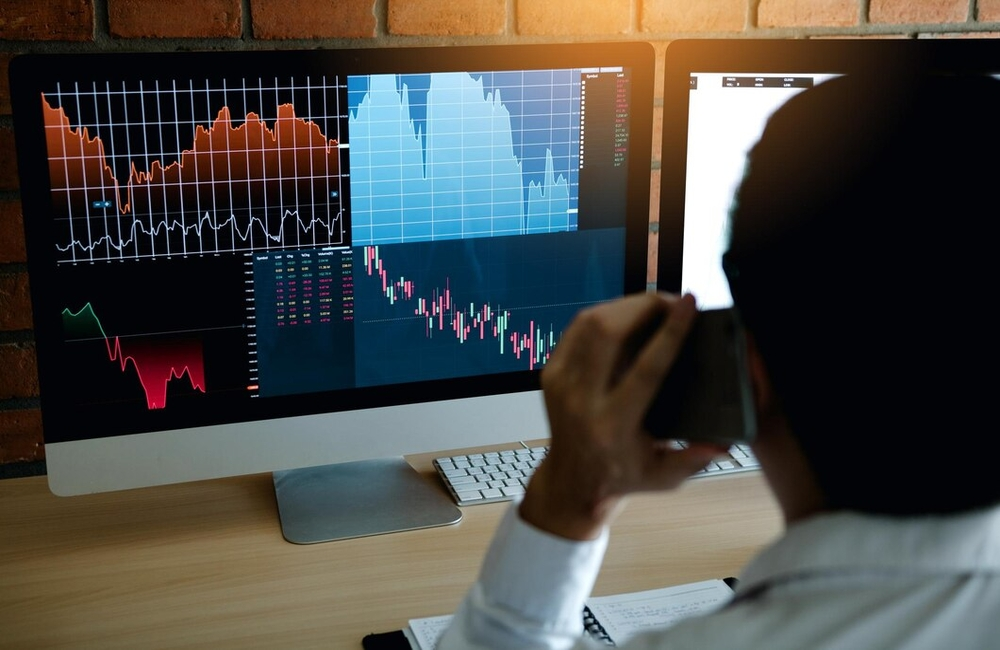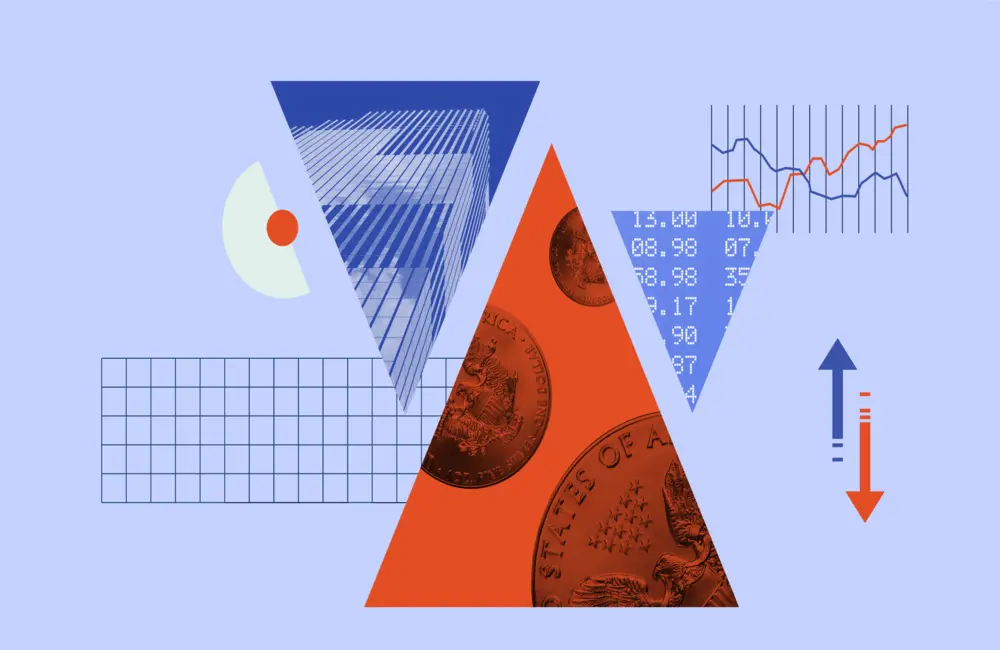ASX futures were 42 points or 0.6 percent lower at 6775 by 7:00am AEDT on Wednesday, indicating a fall at the open.
US stock indexes declined on Tuesday as investors bet on tighter Federal Reserve policy and the energy crisis in Europe.
After the long Labor Day weekend, the S&P 500 was down 0.4 percent following a tumultuous session on Friday that sent major indexes tumbling. The Dow Jones Industrial Average fell 0.5 percent and the tech-focused Nasdaq Composite was down 0.7 percent. Each of the major indexes has declined for three straight weeks.
Stocks worldwide have been under pressure in recent weeks as concerns about tighter monetary policy from the U.S. and a darkening economic outlook in Europe have led investors to ditch riskier assets.
Brent crude oil fell $2.91, or 3%, to settle at $92.83, amid concerns that lockdowns in China could curb demand for the commodity. OPEC+ agreed to cut oil production for the first time in more than a year on Monday, delegates said, as it readied new Russia-led supply curbs to prevent a glut and a collapse in prices with potential repercussions for global inflation and even interest rates through the rest of 2022. Gold, meanwhile, slipped 0.55% to US$1,701.06.
In local bond markets, the yield on Australian 2 Year government bonds was flat at 2.98 percent and the 10 Year was 3.64 percent. Elsewhere, the yield on 2 Year US Treasury notes rose to 3.5% while the yield on 10 Year US Treasury notes was up at 3.35%.
The Australian dollar was 67.32 US cents from 67.95. The WSJ Dollar Index, which measures the U.S. currency against 16 others, ticked higher to 101.71.
Asia
Shares in China rebounded, with concerns about the country’s continuing Covid-19 outbreaks easing somewhat. The benchmark Shanghai Composite Index gained 1.4% to 3243.45, while the Shenzhen Composite Index climbed 1.2% to 2113.27 and the ChiNext Price Index inched up 0.1% to 2540.64. The Financial sector could stay in the spotlight after the PBOC on Monday said it will cut the foreign exchange reserve requirement ratio for banks to 6%. The decision is a strong sign that PBOC is "growing more uneasy about the recent pace of CNY depreciation in light of Covid-19 outbreaks and rising uncertainties in the property sector," say UOB analysts in a note. Bank of China added 0.7% and Agricultural Bank of China and Industrial & Commercial Bank of China were flat.
Hong Kong’s Hang Seng Index lost 0.1% to 19202.73, suffering its fourth consecutive session of declines as renewed concerns over the Covid-19 outbreak in China sapped sentiment. Haidilao, the hot-pot restaurant operator, was the hardest hit, with losses of over 3.5%, while tech giants Tencent Holdings and Alibaba Group fell 1.5% and 0.5% respectively. Property developers, which have heavy offshore borrowing, also advanced as the PBOC acted to stem the yuan’s decline. Shares of Country Garden Holdings jumped 9.3 percent and Longfor Group rose 5.8 percent. BYD Co., rallied 2.7%, rebounding from losses during six sessions. Fosun International was off 5.9% and fell 13% over the past three sessions on the news of stakes being sold in its subsidiaries.
The Nikkei Stock Average finished flat at 27626.51 as gains in pharmaceutical and steel stocks helped offset losses in retail and information technology shares. Daiichi Sankyo is up 2.0% and Nippon Steel is 1.6% higher, whereas furniture retailer Nitori Holdings is 3.1% lower and Rakuten Group is down 2.8%. Broad market index Topix slipped 0.1% to 1926.58. USD/JPY climbed to a new 24-year peak of 141.16, from 140.58 late Monday in New York. Investors are also watching for U.S. economic data, including Institute for Supply Management’s services activity numbers later in the day.
Europe
The pan-European STOXX Europe 600 Index rose 0.99 point, or 0.24%, to 414.38, the German DAX gained 110.66 points, or 0.87%, to 12871.44, and the French CAC added 11.39 points, or 0.19%, to 6104.61.
Meanwhile, the UK’s new Prime Minister is a woman called Liz Truss. In the news, in London, the FTSE 100 ended 0.2% higher on Tuesday led by consumer cyclicals and financials, AJ Bell’s Russ Mould says. “Investors seem to be betting that the potential relief from energy bills will prevent the disaster scenario of consumers sharply reining in spending, which they had been expecting,” Mr. Mould says. In the meantime, “the pound was the outperformer at the end of the day after Liz Truss’s shock and awe announcement in a bid to control energy prices” which would bring the British pound “supercharge highs and lows,” said Joshua Mahony, senior market analyst at online trading platform IG.
North America
Stock indexes in the US dropped on Tuesday, pressured by prospects for a more hawkish Federal Reserve and an energy crisis in Europe.
The S&P 500 fell 0.4 percent in the wake of the long Labor Day weekend, after a bumpy session on Friday sent the major stock indexes lower. The Dow Jones Industrial Average fell 0.5 percent, and the tech-heavy Nasdaq Composite dropped 0.7 percent. The major indexes have all dropped for three straight weeks.
Stocks around the world have slumped over the past few weeks as concerns about tighter monetary policy in the U.S. and a darkening economic outlook in Europe have pushed investors to sell off riskier assets.
Among the sectors in the S&P 500, seven of the 11 were trading lower in the afternoon, with gains coming from industrials, healthcare, real estate, and utilities.
Most at this point say they have given up hope that the rapid rise of the U.S. stock market from mid-June to mid-August was the beginning of a new bull market and have instead conceded that it most probably was a bear-market rally. Already, the S&P 500 is down over 8 percent from the close in August, from Friday’s close.
“It’s going to be really about, ‘OK, just how bad does it get, given that the Fed is this tight and stays that way?’” Tim Chubb, chief investment officer at Girard Wealth Advisory, “I think the game plan is, we’re going to probably take a bit of a pause here, and you’re going to get people kind of saying, ‘I think I still want out.’
Investors have been panicking that persistently aggressive increases in interest rates will drive the U.S. economy into an extended recession. And consumers are already feeling especially downbeat, as analysts have started cutting their estimates for third-quarter earnings.
“As pressure builds on companies and consumers and the downturn intensifies, that’s going to put pressure on stock prices,” said Susannah Streeter, a senior investment and markets analyst at Hargreaves Lansdown. “The stock market has still got some declining to do here, mainly just because of just how far prices were in the bubble during the pandemic,” he said.
A handful of investors are betting that inflation will remain elevated next year, too. Eddie Ambrose, a partner at Sound View Wealth Advisors in Georgia, said he was looking for safety in stocks of dividend payers that have consistently paid and increased dividends.
“They are dull, and dull is good in a good way right now,” Mr. Ambrose said. “They’re paying you some amount of money to retain them.”
One of the factors for the rebound in European stocks was the pullback in prices in the energy market Tuesday, Ms. Streeter said. Now, investors are focusing on the European Central Bank’s interest-rate decision on Thursday. In the U.K., many investors are also looking at what is next on the agenda for Liz Truss, who won the race for leader of the ruling Conservative Party, and will become Britain’s next prime minister.
Australia
The Australian share market is poised to lift on the back of a one-day rebound on Wall Street, snapping a stretch of seven consecutive losses. That calmed investors’ nerves after a steep slump in oil prices by shedding new light on the U.S. central bank’s commitment to fight inflation.
ASX futures were 29 points or 0.43% higher at 6752 at 8:00 am on Thursday, indicating a higher start.
U.S. stock indexes rose on Wednesday as investors weighed threats to the global economy against potential opportunities in domestic stocks. The S&P 500 was up 1.8%. The Dow Jones Industrial Average rose 1.4 percent, while the tech-heavy Nasdaq Composite added 2.1 percent. All 11 sectors in the S&P 500 rose, except energy stocks.
Both stocks and commodities worldwide fell for a third week in a row, taking the brunt of a three-pronged worry about the world economy.
In commodities, oil prices tumbled to their lowest level since before the invasion of Ukraine. Brent crude, the international benchmark, dropped 5.2 percent to $88 a barrel. “What we’re seeing is concern about Chinese demand now,” said Stewart Glickman, senior equity analyst and head of energy sector at CFRA Research. “The lion’s share of the incremental demand for oil on an annual basis is from the emerging world,” Mr. Glickman said. “When China slams the brakes hard on its economy with its zero-covid policy, that chews away at anticipated demand.” Gold, meanwhile, was up 0.06% to US$1,718.06.
The yield on the Australian 2 Year local bond has increased to 3.02% and the 10 Year yield increased to 3.70%. Offshore, the yield on the 2 Year US Treasury notes was up at 3.43% and the yield on the 10 Year US Treasury notes was at 3.26%.
The values of the Australian dollar tumbled to 67.65 US cents from the previous close of 67.34. The Wall Street Journal Dollar Index, which measures the U.S. currency against 16 others, ticked up to 101.36.
Asia
Chinese shares rose, investors digested August trade data. “Hitting most of the major export destinations, shipment growth improved broadly, consumer and anti-Covid goods export growth improved notably too,” says UBS North Asia economist William Deng. He estimates that China’s export shipments could climb in the next few months, “if the impact from temporary port suspension normalizes. The benchmark Shanghai Composite Index added 0.1% to 3246.29, while the Shenzhen Composite was up 0.5% at 2123.20 and the ChiNext Price Index advanced 1.2% to 2570.80. Auto stocks were broadly higher. BYD Co. added 3.6% and Great Wall Motor was 0.8% higher, while SAIC Motor was 0.1% lower.
European stocks were mixed by the end of trading after broadly falling earlier in the day when American stocks rebounded. The pan-European Stoxx Europe 600 index was down 0.6%, the French CAC 40 was flat and the German DAX rose 0.3%.
Ubisoft Entertainment tumbled 17% after China’s Tencent Holdings Ltd. agreed to increase its stake, sparking worries it could derail a full sale of the French game maker. Energy and mining stocks dropped as oil and gas and copper prices fell. Utility stocks gained ground, with Austrian electricity company Verbund leading the surge, as the market bets on regulation changes to tackle Europe's energy crisis.
The FTSE 100 ended Wednesday 0.67% lower as mining and oil stocks were hit. It has been a very subdued day for markets and it seems the latest burst of equity sales has seen a lot of its sting taken out, but the FTSE 100 was unable to shake off the performance of commodity names to the downside, says IG Group PLC chief market analyst Chris Beauchamp in a research note. “Writing on the wall” OPEC+'s decision to send a message earlier in the week clearly hasn’t been heeded and oil is now weaker still, with recession fears the driving force for now– Mr Beuachamp.
North America
Major U.S. stock benchmarks rose on Wednesday even as investors weighed threats to the global economy. The S&P 500 was up 1.8%. The Dow Jones Industrial Average was up 1.4 percent, the tech-heavy Nasdaq Composite added 2.1 percent. All 11 sectors in the S&P 500 gained, with the exception of energy companies.
Stocks and commodities have also fallen for three straight weeks on triple-headed fears for the world economy. Covid-19 lockdowns in China are restricting activity and disrupting international supply chains. Europe’s energy crunch is closing some industrial doors and leaving governments with hefty bills.
In the United States, the problem for markets is distinct. Some investors say the economy is too strong and that is contributing to expectations that the Federal Reserve will continue to raise interest rates to tamp down inflation. Wednesday’s action may indicate that sentiment is reversing.
“For the last few weeks, when we got good economic news, the market took it as bad news, because it was going to push the Fed to tighten further,” said Art Hogan, chief market strategist at B. Riley FBR Inc. “That counterintuitive reaction can only last for so long today the investors are coming back and saying they overreacted.”
The best case, Mr. Hogan said the Fed stamping out inflation without prompting a recession also requires the economy to remain relatively strong. Yields on long-term U.S. Treasuries lurched back toward earth as well, in part with the markets for what is often perceived as the world’s longest-dated benchmark yielding securities (to which investors look for signals on almost every kind of asset, including stocks, trading like junk before the yield on zombie paper began coming down).
Chinese trade data showed that outbound shipments increased 7.1 percent in August from a year earlier, a deceleration of the pace set in July, when shipments jumped 18 percent. Imports into China grew 0.3% from a year earlier, compared with 2.3% growth in July.
The export numbers indicate that global growth is softening and the import data point to the impact of lockdowns in China on demand, said BNP Paribas Asset Management strategist Daniel Morris. “You are potentially losing your second-biggest global engine of growth because Covid just feels like it drags on and on in terms of the restrictions,” he said.
Stocks dipped late Thursday as a slide in energy prices hit oil and gas stocks. The S&P 500 lost 0.4 percent, with the energy sector down 3.6 percent. Most of the sectors in the S&P 500 traded lower, including industrials, healthcare, and consumer discretionary stocks.























